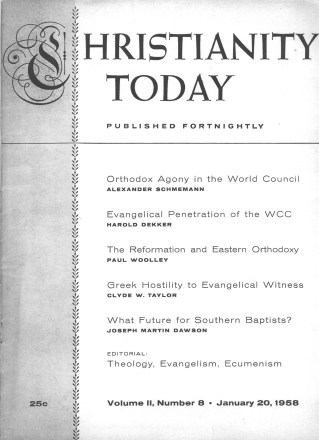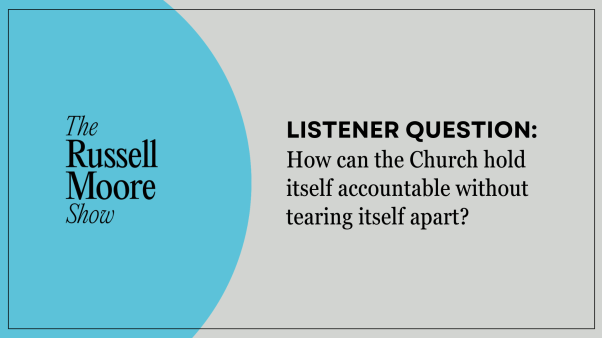Inerrancy is not a formally stated claim made by the Scriptures on their own behalf. It is rather an inference that devout students of the Word have made from the teaching of the Bible about its own inspiration.
If the Spirit of God has really wrought in the production of this Book from start to finish, it is hard to conceive of error save such as may have crept into the text in the course of its transmission.
What Of Original Texts?
The appeal to the original texts of the Old and New Testaments has indeed often been ridiculed as an unworthy refuge. Who has seen the so-called infallible originals? so the query goes. No one in our time, certainly. No one in possession of the facts would argue that the text of Scripture has come down to us unchanged from the beginning. The Scriptures contain no promise of the supernatural overshadowing of the transmitters of the Word such as is claimed for the writers. The variations are numerous, though mostly unimportant in relation to the message of Scripture. But we have no reason to conclude from the data of textual criticism that the writers of Scripture were so left to their own devices that error should be expected in the autographs.
If the Bible were of such a nature that it was composed by men and only subsequently was adopted by God and breathed into by the Holy Spirit, then it might conceivably be allowed that God was so concerned with the spiritual message that he tolerated a measure of error in the factual material. But this is not the Scriptural doctrine of its own origin. Rather, it is insisted that the Spirit was active and controlling in the very production of the Word in its entirety.
Granted that the spiritual message is intrinsically more important than the historical minutiae of the narrative framework, yet the Scripture gives no hint of distinction as far as trustworthiness is concerned. This is understandable since the historical element is itself the unfolding of God’s providential and saving activity. Herein lies the fallacy of the kernel-husk solution to the problem we are considering. The history of biblical interpretation shows that the abandonment of the inerrancy of Scripture in nondoctrinal items has a tendency to make criticism of the doctrinal data much easier.
Consequently, it is not wholly satisfactory to rest in the solution that the Bible is “the only infallible rule of faith and practice” and be indifferent to the question of its infallibility in areas that do not directly relate to faith and practice. Evidence is lacking in the statements of Scripture for the notion that the Word is the product of a division of labor, God working with the writers on doctrinal matters and leaving them to their own wisdom on historical matters.
Approaching inerrancy then as a corollary of the biblical exposition of its own origin, there seems to be every reason to insist upon it. But when the data of Scripture are examined, many problems present themselves, problems that seem to make the retention of inerrancy difficult if not impossible. Parallel accounts appear to contradict one another, and quotations from the Old Testament do not always agree with the Old Testament text we have or even with the text of the Septuagint as we have it. So if the fact of inerrancy is to be derived from Scripture deductively, the form that our view of inerrancy ought to take is to be derived inductively from the data of the text.
Some Excessive Criteria
It may be helpful to start with the negative approach. Certain criteria of inerrancy ought not to be applied. One is the insistence that there should be verbal agreement in multiple accounts of the same event. Such agreement would involve mechanical control over the writers of Scripture such as is not suggested by the liberty given to them to utilize their own vocabulary and style of writing. Or, on the supposition that they consulted one another’s work, it would make them echoes and rubber stamps of one another. Identity of language in such instances could even suggest the distinct possibility of collusion, which would tend to destroy confidence in the record. It is widely recognized, especially in courts of law, that witnesses may diverge from one another in details and even in perspective without being chargeable with untruth.
This should be kept in mind when one is wrestling with the problems of the Resurrection narratives in the Gospels. Again, in the account of Jesus’ baptism, Mark reports the voice from heaven as saying, “Thou art my beloved Son.” Matthew puts it in the third person, “This is my beloved Son.” It is disingenuous to insist that the voice can only have spoken in one way, so that one of the reports must be erroneous. Mark gives the words in the form of direct address as they are found in Psalm 2. Matthew puts the words in the third person, possibly to emphasize that the baptism was properly witnessed, and by no less a witness than God himself. Testimony to the divine sonship is equally clear in both accounts.
Another criterion to be avoided is that there should be the same degree of completeness and finality in the statements of Scripture at all periods. There is such a thing as progress in the Word of God, and that progress is discernible both in the area of revelation and in the area of reception and response. The early chapters of Genesis have a primitive, almost naive, character about them that befits the record of events in the distant past. Only when the Son of God was revealed could the knowledge of God be at all fully communicated or a fully adequate response by men be expected.
The claim of inerrancy should not be made dependent upon verbal exactness in quotation. It is anachronistic to apply the standards of our own time to the Scripture. With our wealth of printed books and other materials, all so easy of access, we can justly demand that quotations be verbally accurate. But such was not the standard of antiquity when written materials could be consulted only under great difficulties. Quotation from memory was common.
We ought not to expect scientifically precise statements of natural phenomena. The very thought that the biblical writers should be required to anticipate the discoveries and the terminology of modern times is altogether incongruous. As we might expect, their descriptions of nature are popular and not technical. What is more, we can still use the language of Scripture touching scientific matters without being counted antiquarian or incorrect. Even the scientists do it in ordinary conversation.
Finally, difficulties ought not to be prejudged as errors. The folly of this has been demonstrated many times over. One of the best known examples is the case of Sargon, mentioned in Isaiah 20:1 but unknown otherwise. Hostile criticism did not hesitate to pronounce the Scripture inaccurate. But now Sargon’s palace has been excavated and his royal records uncovered. Some items in the Word of God remain to be confirmed, such as the enrolment under Cyrenius (Luke 2:2). Some may never be confirmed. But lack of confirmation is no basis for repudiation.
Having cleared the ground somewhat, it is well to ask ourselves, What then are the proper criteria of inerrancy? Three, at least, are worthy of special consideration.
Cultural Milieu Important
First, the Bible must be evaluated in terms of its cultural milieu. If the soul of Scripture is universal and eternal, its body remains Oriental. It was written by men who had patterns of thought that differ from ours at many points. The more one can steep himself in these, the better will be his position as translator or interpreter. With us, for example, the word “son” has one commonly accepted meaning. But in Scripture it sometimes means descendant. It may also connote the possession of certain characteristcs, as in the phrase “sons of darkness” or “sons of disobedience.” Still other nuances of thought are conveyed by this word. The symbolic use of numbers, to take another example, is more congenial to the ancients than to our mental climate. Only occasionally does one get the impression that numbers in Scripture are given with great precision. Those who know most about the East tell us that the Bible is eminently true to the life and setting of the Orient as it persists today.
Second, diversity in Scripture statements is not incompatible with the unity of truth they represent. It was recognized in the early Church that differences existed in the Gospel accounts, but the prevailing attitude was that this did not disturb the unity of presentation, which was guaranteed by the operation of the sovereign Spirit upon the writers. This is the testimony of the canon of Muratori (ca. A.D. 170) and of Irenaeus a few years later. Doubtless these men were therefore not sympathetic to the idea of presenting the Gospel narrative in one continuous account so as to relieve the story of apparent contradictions, the very thing which was done by Tatian in his Diatessaron at about the same period. The Apostle Paul had advanced the thought, in dealing with spiritual gifts, that there are diversities of operation but it is the one Spirit who works through them all. Our western way of thinking, patterned closely after the Greek, inclines to demand uniformity. We tend to associate diversity with deviation and so with error. Apart from the question as to which outlook is correct, we ought not to sit in judgment on Scripture as untrustworthy because of a variety of presentation of the same basic material. It is a well-known fact that our Lord accepted the Old Testament of his day as the Word of God which could not be broken. In that Old Testament are many duplicate narratives, such as the accounts in Kings and Chronicles of the reigns of the kings of Judah. Evidently the compiler of Chronicles made use of Kings as source material, having also the records of certain prophets to draw upon. Even where the same event is being described, it is not always told in the same way, certainly not in the same words. All we are concerned to point out here is the fact that our Lord, familiar as he was with both portions, apparently accepted both as equally the Word of God. The bearing of this on the Synoptic problem is quite obvious.
Faithfulness To Purpose
Third, Scripture must be judged in terms of faithfulness to the purpose in view. A change in readers often necessitates a change of statement in order to achieve communication. In the account of the Triumphal Entry, Matthew and Mark have the words “Hosanna in the highest.” Luke has instead, “Glory in the highest.” “Hosanna,” being a Semitic word, would be unintelligible to Luke’s Gentile readers. One of our greatest authorities on the language of the Gospels, Gustaf Dalman, says, “It cannot be doubted that hosanna was understood to be a cry of homage in the sense of glory or hail to the Son of David.” The change was imperative, but it was made without falsification.
One of the knottiest problems in the New Testament is the evaluation to be put upon the discourses in John’s Gospel. They are quite different from anything to be found in the Synoptics. Did the Lord actually speak them? Are they authentic reproductions of what he said? It is no doubt an oversimplification to quote Jesus’ prediction about the Spirit bringing to the remembrance of his disciples whatever he had said to them. The Saviour also predicted that the Spirit would lead his followers into all truth. We need a combination of these two sayings to explain the discourses in John. That they rest upon Jesus’ utterances we have no doubt. That they constitute in part an interpretation of those utterances under the tutelage of the Spirit we have no doubt also.
Too Little Or Too Much
Our conception of inerrancy ought not to require us to adopt an a priori position about verbatim reporting. Our concern ought to be to learn with all humility as much as we can of the methodology that God the Spirit has chosen to use in giving us the Word of God. Those who are hostile to the claim of the veracity of Scripture commonly expect too little of the Bible. Its friends, on the other hand, may err in expecting too much.
Everett F. Harrison is Professor of New Testament at Fuller Theological Seminary, a post he previously held at Dallas Theological Seminary. He holds the Ph.D. degree from University of Pennsylvania. Author of The Son of God Among the Sons of Men, he is editing a new theological dictionary.
Preacher In The Red
“LIFE’S LIKE THAT”
It all happened several days after the Rt. Rev. David Chellappa, Bishop in Madras, South India, arrived in the fast-moving city of New York. Everyone seemed to be in a hurry to get somewhere. It didn’t take long before he fell into the same fast pace.
One evening, he hurried to a comer where there were several parked taxicabs and cars.
“Quick man, take me to the Episcopalian Theological Seminary.”
“The Episcopalian Theo …” the man began to repeat.
“Don’t you know where it is?”
The man shook his head.
“Well, man, you ride down this street, turn left and then right. See?”
The man nodded. “OK,” he said, lifting up the heavy suitcase and opening the back door.
Upon arriving, the Bishop asked: “How much is the fare?”
“The fare?,” queried the man. “This isn’t a taxi.”—Dr. BLAISE LEVAI, Vorhees College, Vellore, South India.
For each report by a minister of the Gospel of an embarrassing moment in his life, CHRISTIANITY TODAY will pay $5 (upon publication). To be acceptable, anecdotes must narrate factually a personal experience, and must be previously unpublished. Contributions should not exceed 250 words, should be typed double-spaced, and bear the writer’s name and address. Upon acceptance, such contributions become the property of CHRISTIANITY TODAY. Address letters to: Preacher in the Red, CHRISTIANITY TODAY, Suite 1014 Washington Building, Washington, D.C.










